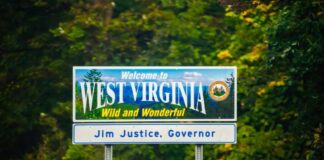Unsurprisingly, under the leadership of Common Core czar David Coleman, the College Board has been rewriting AP courses to reflect a leftist worldview. AP courses like U.S. History and European History now push a blatantly left-of-center narrative that clashes with traditional scholarship and creates a de facto national curriculum for AP students.
The latest controversy involves the new AP African-American Studies (APAAS) course, which was recently piloted and rolled out in its final form. Some state education officials are stepping up and refusing to adopt APAAS as a state-approved course, signaling an end to unquestioningly accepting whatever the College Board dictates.
Florida Gov. Ron DeSantis was the first to stand against using taxpayer dollars to fund this indoctrination of students. Following his lead, the Arkansas Department of Education and South Carolina officials have raised concerns about whether the course should count toward graduation. Most recently, the Georgia superintendent of education cited concerns about the CRT-infused content of APAAS as a reason for denying full approval in Georgia public schools. The Democrat members of Georgia’s House and Senate Education Committees are even holding a hearing on the issue on Aug. 8.
Officials in these vigilant states have deep concerns about APAAS. The original course framework barely tried to hide its focus on Marxist, CRT-inspired instruction. Critics, such as Stanley Kurtz, forced the College Board to revise the framework to remove the most blatant examples of propaganda and conceal the remaining bias. But the core problem persists.
Kurtz examined the influences on and structure of the revised APAAS framework and found that much of the course remains infused with radical ideology. It relies heavily on anti-capitalist and anti-Western theories of radical historians, emphasizing international anti-colonialism when the focus should be on America. The course glorifies Marxists like the Black Panthers and largely ignores black conservatives. It includes substantial material on CRT concepts of “intersectionality” and oppression without criticism.
The course culminates with a week of “Further Explorations” on topics like reparations and the abolition of prisons and police, making it clear that only leftist policies are the correct answer. Kurtz describes this final unit as a prescription for leftist political activism.
A consistent problem with APAAS is its almost total lack of balance. It doesn’t even acknowledge that there are various perspectives. Except for one speech by Gen. Colin Powell, added after the initial Florida backlash, there is little to no representation of conservative or moderate black thought. The course ignores influential black scholars like Thomas Sowell, Shelby Steele, and John McWhorter, who reject the radical line of thinking.
In discussing community activism, APAAS could have balanced the violent Black Panthers with leaders like Robert Woodson, a civil rights activist advocating community-based solutions. However, since Woodson doesn’t fit the narrative, APAAS ignores him.
Like many other “studies” courses focusing on particular identity groups, APAAS aims to immerse students in a single approved worldview.
States like Arkansas, Florida, Georgia, and South Carolina have laws prohibiting teaching divisive concepts in public schools. Governors and education officials have warned that some APAAS content could violate those statutes. Even without such laws, state officials can scrutinize AP courses to ensure they provide balanced coverage.
This examination should consider the perspective of parents and taxpayers. What’s acceptable in California may alarm Arkansans, and they shouldn’t be silenced by assurances that the College Board knows best.
Rejecting APAAS predictably leads to cries of racism. The superintendent of an APAAS pilot district in Georgia claimed that withholding approval for this course sends a message that African American contributions are not worthy of academic study. This is nonsense. Inserting “African American” into a title shouldn’t shield any curriculum from proper examination. Lazy propaganda has no educational value. Students of any race don’t benefit from politically biased content, and state officials should be commended for demanding better.
APAAS could be improved by including non-leftist black thinkers and creating actual debates with balanced perspectives. But the College Board isn’t interested in genuine education over woke propaganda. It relies on state officials to accept radicalized mediocrity rather than face attacks from leftist politicians and media.
But in some states, there are new sheriffs in town who aren’t afraid of a fight. The College Board’s dictatorship can and must be dismantled.



















